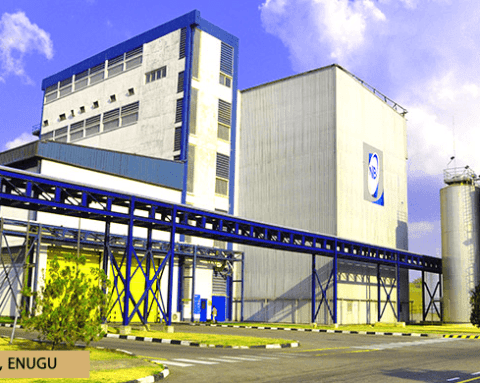Nigeria’s non-oil exports saw a significant increase of 19.6 per cent in the first half of 2025, reaching $3.23 billion, according to data released by the Nigerian Export Promotion Council (NEPC).
This is considered a boost to Nigeria’s economic diversification agenda amid uncertainties posed by oil price volatility in the international market. Crude oil export has been the country’s major source of foreign exchange earnings.
Join our WhatsApp ChannelNEPC Executive Director/Chief Executive Officer, Nonye Ayeni, who announced the development on Sunday, said several factors contributed to the country’s non-export surge.
“I am pleased to inform you that non-oil products exported in the first half of 2025 were valued at $3.225bn. This shows an increase of 19.59 per cent as against the sum of $2.696bn recorded for the first half of the year 2024,” Ayeni stated.
Presenting NEPC’s First Half-Year Progress Report on the country’s non-oil export performance, Ayeni said the products exported range from agricultural commodities, extractive industries, and manufactured and semi-processed products.
The NEPC boss said cocoa emerged as the most exported commodity, followed by urea/fertiliser, in the first half of 2025.
The key drivers of the growth include increased global demand for Nigerian cocoa, sesame, cashew, and aluminium; expanded market access and tariff relief under the African Continental Free Trade Area (AfCFTA); and NEPC-led interventions such as capacity building in quality, standards, packaging, labelling, export documentation, and certification.
“In the first half of the year 2025, a total of 236 different products were exported in the period under review. This represents an increase of 16.83 per cent when compared to the 202 distinct products exported in the first half of 2024,” Ayeni stated.
“The products exported range from agricultural commodities, extractive industries, and manufactured and semi-processed products. However, it is pertinent to state here that the non-oil export of Nigerian products is gradually diversifying from traditional agriculture exports to semi-processed/manufactured products.
“Based on data received from Pre-shipment Inspection Agents, of the top-20 products exported in the first half of 2025, Cocoa Bean was the most exported commodity with 34.88 per cent value in terms of total export compared to 23.18 per cent for the same period in 2024.”
She said NEPC organised programmes on capacity building on quality, standards, packaging and labelling, export documentation and certifications. She added that the Council also facilitated market access and market linkages programmes for the exporting companies, “thereby giving their products more visibility in the global market.
“The growth in value-added exports improved earnings, as more exporters are now imbibing the culture of value addition to their products. The rising demand from emerging economies, such as India, Brazil, Vietnam, and Africa, increased Nigeria’s non-oil export volumes and diversity.”
Indorama Eleme Fertilizer and Chemical Limited was the top exporter, accounting for 11.92 per cent of total export value, followed by Starlink Global & Ideal Limited (8.82 per cent) and Dangote Fertilizer Limited (6.39 per cent).
Nigeria exported 663 million metric tonnes of goods to 11 ECOWAS countries in the first half of the year, while exports to 21 other African countries outside ECOWAS totaled 488 million metric tonnes valued at $83.54 million.
The Netherlands, the United States, and India emerged as the top three destinations for Nigerian non-oil exports in H1 2025, accounting for 18.64 per cent, 8.42 per cent, and 8.36 per cent of total export value, respectively.
Persisting Challenges
Some of the challenges still hindering higher non-oil export growth include:
Infrastructure bottlenecks (ports, power, logistics), currency volatility, and global economic slowdown risks, which analysts said could dampen demand in H2 2025.
However, the NEPC CEO expressed confidence that with continued policy support, improved infrastructure, and access to financing, Nigeria could could surpass its non-oil export record by the end of 2025.
Victor Ezeja is a passionate journalist with seven years of experience writing on economy, politics and energy. He holds a Master's degree in Mass Communication.










